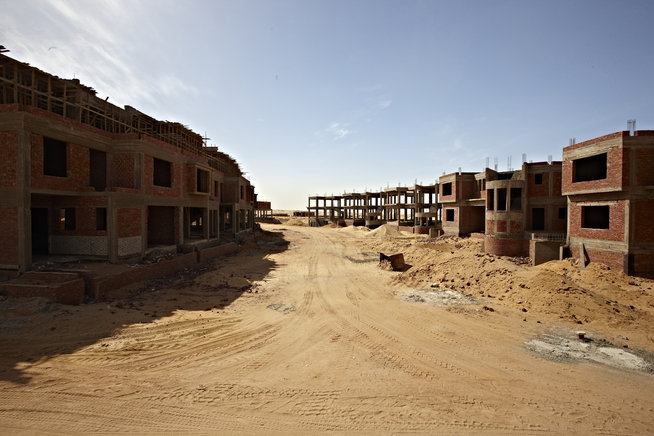DUBAI: Cheaper valuations mean Middle East fund managers may increasingly look to single-country telecoms operators as a proxy for domestic economic growth.
While traders expect renewed selling on Egypt’s bourse when it reopens on Sunday as protests against President Hosni Mubarak’s 30-year rule continue, longer-term investors’ strategy will remain based on fundamentals.
Banks are the usual equity choice for a macroeconomic play, but telecoms may be a better choice, said Ibrahim Masood, senior investment officer at Mashreq Bank in Dubai.
Doubts linger over whether bank provisions in some countries have peaked, while the lack of listed oil companies mean local exchanges are unrepresentative of the economies of the world’s top crude exporting region.
"Single country telecoms operators like Mobily, Du and Nawras are all proxies for local economic growth," said Masood. "Normally you would buy banks, but telecoms are cheaper."
Gulf Arab telecoms operators have a median price to earnings ratio of 9.1 percent, varying between 74 and 5.7, while banks are more expensive with a regional sector median of 14, according to Reuters data.
Masood said Oman, Saudi and Qatar all had attractive fundamentals of high GDP and young populations and these would be reflected in local telecoms’ earnings.
Qatar’s economy is forecast to grow 12.8 percent in 2011, Saudi’s by 4.3 percent and Oman 4.6 percent, according to analysts polled by Reuters.
"Telecoms give you an idea about local economic growth, such as population growth and distribution of ages within the population — young people are the primary driver behind technology uptake," said Hans Zayed, Rasmala head of research.
Mobily, Abu Dhabi-listed Etisalat’s Saudi affiliate, has been expanding aggressively to beat analysts’ profit forecasts for three straight quarters as it takes market share from former monopoly Saudi Telecom Co (STC), while Du has made similar inroads into Etisalat’s UAE business. Shares in Oman’s Nawras, a unit of Qatar Telecom (Qtel), are up 16 percent since listing on the Muscat bourse in November.
This trio are all relatively recent start-ups and so are yet to become the stable cash cows favored by investors looking for defensive stocks and a play on the local economy.
"There’s a broad correlation between industry revenue growth and economic growth, but that doesn’t take into account whether the operator is gaining or losing market share," said Richard Barker, Credit Suisse telecoms analyst. "It’s more likely to be true of a mature operator than it is of a start up, which will have more different characteristics than the economy at large."
Nevertheless, single-country operators are easier for investors to understand, although increased competition is pressuring margins.
"Multi-country operators offer diversification of risk," said Barker. "But institutional investors can pick a portfolio of their own and move in and out of companies very quickly to get exposure to particular economic trends, so they don’t necessarily need these operators to provide diversification — they can find that themselves.
"That’s likely to be the case for sophisticated institutional investors from developed markets, but local retail investors may not have the time or resources, so may like the diversification multi-country telcos provide."
Yet banks account for an estimated one-third of regional market capitalization and so will remain a major component of regional investors’ portfolios.
"Banks continue to face challenges, but they still give a good idea of the economic prospects of any country — deposit and loan growth are a good proxy for economic growth," said Sofia El Boury, Shuaa Capital assistant vice-president for research.
Regional bank performance diverged in recent years, with Qatar banks benefiting from strong state support — the government bought banks’ local share and property holdings for a premium — and double-digit economic growth, but bank earnings in the United Arab Emirates and Saudi Arabia have been underwhelming as high provisions and a safety-first lending strategy weighed on profits.
"The problem is that regional stock markets are not necessarily representative of the wider economy," said Rasmala’s Zayed. "Banks can give an idea of how other sectors are performing domestically in terms of both the public and private sector. A combination of telecoms and banks can give you a good idea of what is happening in the economy, especially when demographics come into play.
"Ideally, investors would like to get exposure to domestic consumer plays, but very few are listed in the Gulf, apart from some in Saudi Arabia."
UAE banks are likely to face another tough year in 2011, although fourth-quarter results have so far been broadly above expectations, because domestic economic growth will lag its neighbors.
"Banks have focused on preserving their liquidity, with loan-to-deposit ratios significantly improving year-on-year, so that they will be able to grow when the economic situation becomes less blurred," added Shuaa’s Boury. "UAE bank provisions will be sustained in 2011, but whether these are lower than 2010 will depend on the economic climate."
Egypt
Egypt’s bourse will reopen on Sunday, although trading hours will be cut to three hours from four and the local regulator seems braced for further declines, warning it will suspend trading for 30 minutes if the main index falls by more than 5 percent.
The benchmark fell 22 percent in the three weeks to Jan. 27 as deadly protests spurred panic selling by foreign and local investors.
Selling is seen resuming on Sunday, which may benefit other Middle East markets, especially Saudi Arabia, said Musa Haddad, head of MENA equity desk at National Bank of Abu Dhabi.
"Like Egypt, Saudi Arabia has depth and liquidity to shift from one sector to another, while Saudi also offers stability and economic growth, plus bank provisions are also falling and oil prices are having a positive impact on petrochemicals," added Haddad.
"The UAE will also receive a portion, but Saudi is more liquid, has stronger fundamentals and technically it looks better, with the market in a medium-term uptrend."


